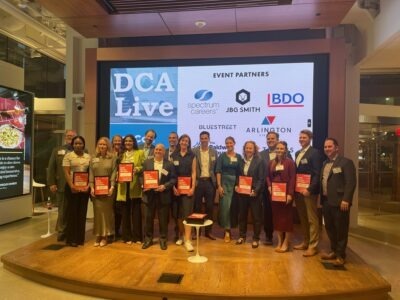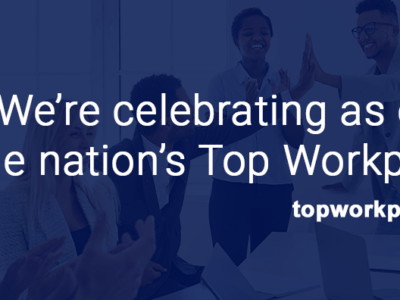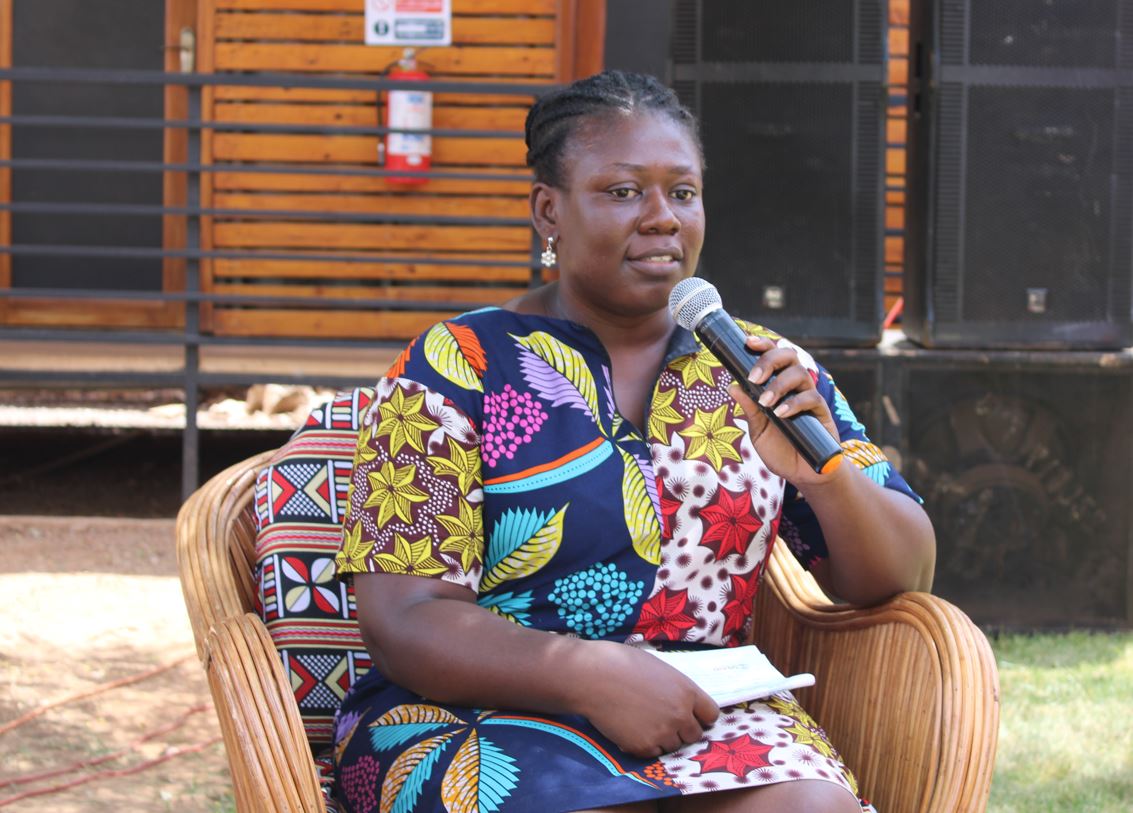
Women in northern Ghana work from sunrise to sunset to provide for themselves, their family needs, contribute to the national food security, and boost the local economy. Despite these substantial contributions, women in the agricultural sector are often marginalized as much of their labor is attributed to male counterparts, as the land holders and production owners. Ghanaian women face numerous obstacles, such as limited access to finance, technology, and trainings. The challenges are barriers to production and profitability. Moreover, women are especially vulnerable to the effects of climate change and have been found to lose more income from heat, drought, and other climate shocks compared to men.
In honor of International Women’s Day and Earth Day, ACDI/VOCA is highlighting the stories, opportunities, challenges, and successes of women and climate smart agricultural market systems. In recognizing the accomplishments of women, and the collective effort of unwavering determination, ACDI/VOCA can continue to work toward a diverse and inclusive world. One which empowers women for gender equality.
Below are three powerful stories about outstanding women who have dedicated themselves to championing female representation in northern Ghana, where ACDI/VOCA is leading the implementation of the USAID-funded Feed the Future Ghana Market Systems and Resilience Activity to drive agriculture-led economic growth through competitive, strong, and climate resilient markets.
Ms. Bushira Alhassan
Northern Regional Director for Gender, Children and Social Protection.
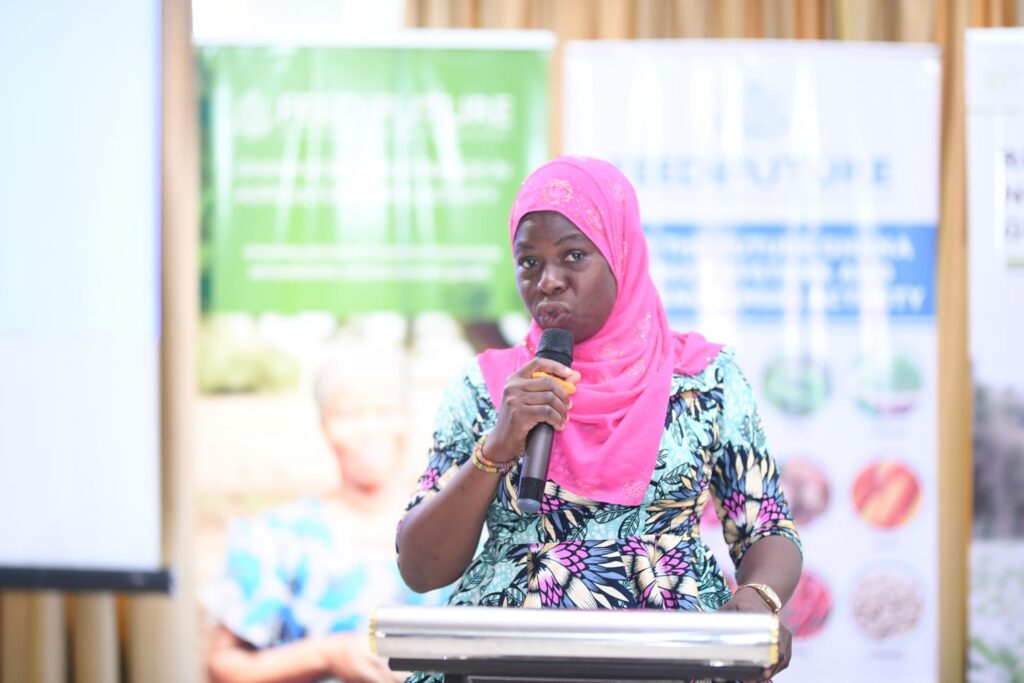
Ms. Bushira Alhassan was the youngest and only female Regional Gender Director in Ghana’s northern region, a male-dominated enclave, between 2016 and 2022. She accomplished this through strong resolve, which kept her career on track following national service in 2006.
Ms. Alhassan has since been working with NGOs in northern Ghana to promote gender equality and women’s empowerment. Frequently called “the troublemaker”, Ms. Alhassan consistently ensures that gender is extensively mainstreamed at all levels of programming.
For the 2023 International Women’s Day celebration, Ms. Alhassan shared advice for young women wishing to work toward gender equality. “Women are capable of anything, do not allow anything to be your obstacle. Perseverance, focus, and planning are the keys to whatever you want to achieve. It can be done only if you remain determined and focused.” She also shared advice for younger women on marriage, “I realized most young ladies in Tamale are always rushing to enter marriage. Marriage can happen anytime provided you are ready. The men are around and want women who are empowered. If you do not empower yourself and you are sitting down eyeing a particular man somewhere, you are deceiving yourself. He might take you in as a wife, but you would run without your sleepers one day. So, the best thing for you to do is to empower yourself so that when the time come for you to marry you would be happy in your marriage and can live your life peaceful as you want.”
Hikimatu Kadiri
CEO, Agromart Solutions, Tamale, Ghana
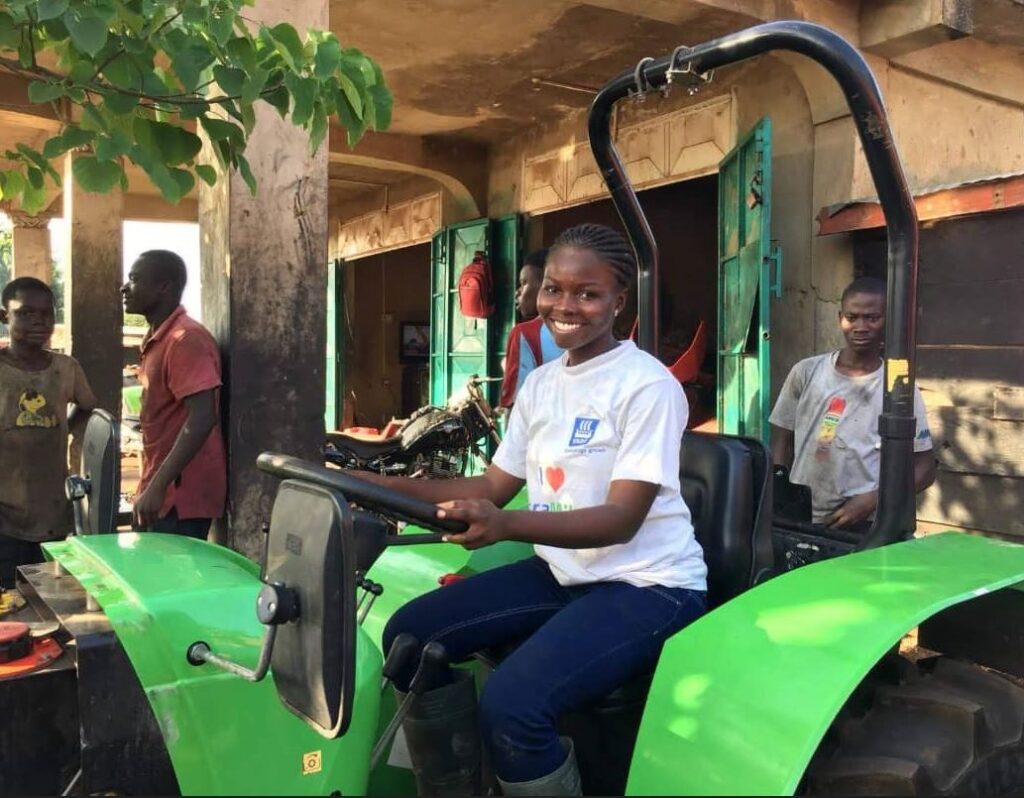
Agromart Solutions was established by Hikmatu Kadiri after she was unable to secure a tractor service to plow her land and cultivate soybeans at the appropriate time. Appropriate inputs and machinery are essential for smallholders to sustainably increase production, but the majority of women in northern Ghana struggle to have access to the climate smart technologies that are critical for their crop growing.
Like most women, Ms. Kadiri was ready, but could not obtain the service required.
Identifying the inequity, Ms. Kadiri decided to make a positive change to help herself and other women in her area. She mobilized resources to receive training in tractor operation. After the training, she rented a tractor to plow the land for women farmers in her community. Gradually, Ms. Kadiri’s service expanded and grew into Agromart Solutions Limited.
Her business now provides plowing, harrowing, planting, and harvesting services to women across the region. Over 300 women farmers have benefited from these services. In addition, women and youth are participating in tractor operations training.
Despite her success, Ms. Kadiri still faces discouragement from male farmers who refuse to recognize her contribution to the community. On International Women’s Day, Ms. Kadiri asks that all women “don’t let the voice of discouragement distract you from your goals.”
Ms. Kadiri’s story demonstrates a potential future for women in agriculture. She says, “Women can make it possible despite the challenges of today’s world. All we need is determination and commitment to action.”
Lucy Ayamgah,
Administrator, Northern Outgrower Business Association
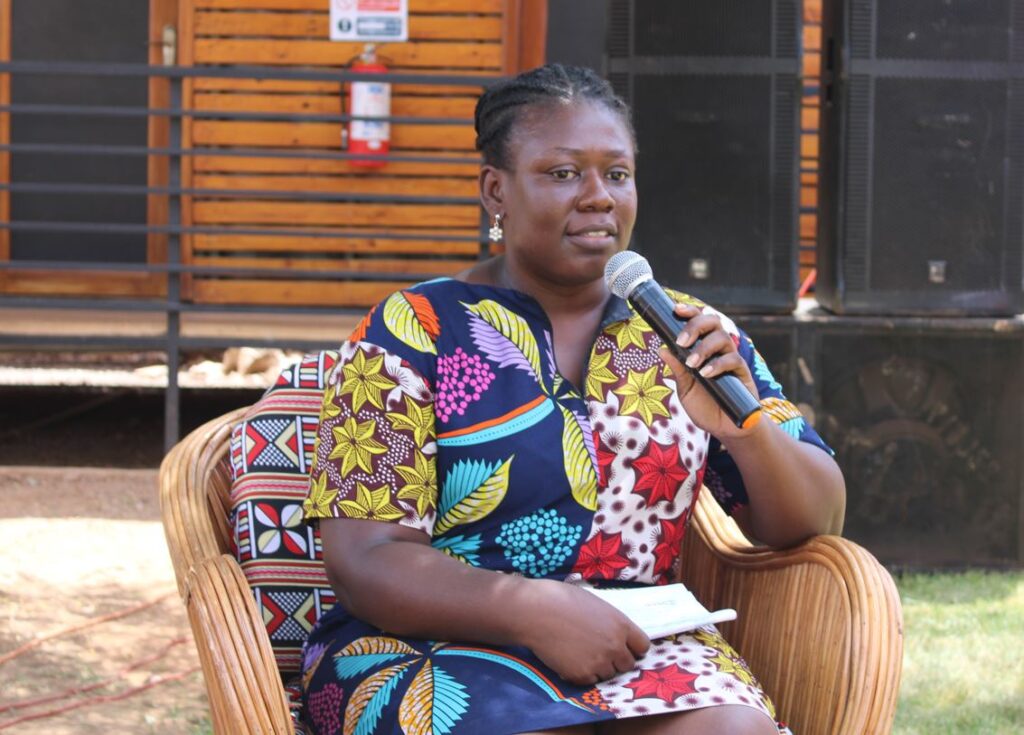
Lucy Ayamgah is a trained nutritionist from the University of Development Studies in Tamale, Ghana. After her studies, she had the opportunity to travel across the country conducting agricultural research with the International Food Policy Research Institute (IFPRI), which was something she thought was out of reach. Ms. Ayamgah’s research reshaped her academically informed understanding of nutrition insecurity as an issue of food insecurity.
Ms. Ayamgah took on an opportunity to work for a mechanical company in Tamale after her research project. She provided mechanization services to farmers in the northern part of the country. In one of Ms. Ayamgah’s field visits, she met one of the members of the Northern Outgrower Business Association (NOBA) who recognized her potential and encouraged her to join as their network administrator to support their operations.
Ms. Ayamgah has worked with more than 12,000 small-holder farmers who participate in the outgrower network which the Markets Systems and Resilience Activity supports. The activity and Ms. Ayamgah help to provide a platform where outgrower businesses and other agribusinesses can network and leverage their individual strengths in order to grow the local agricultural sector’s climate resilience. She also facilitates access to financial services for NOBA members to increase their financial literacy through Village Savings and Loan Association schemes.
Sharing her experience as being the only woman in a male-dominated administration of NOBA, Ms. Ayamgah said “I hear so many discouraging things people say about me but having the support of those around me gives me the strength to move forward.”
Learn more about the Feed the Future Ghana Market Systems and Resilience Activity.
Learn more about our work in Ghana.

